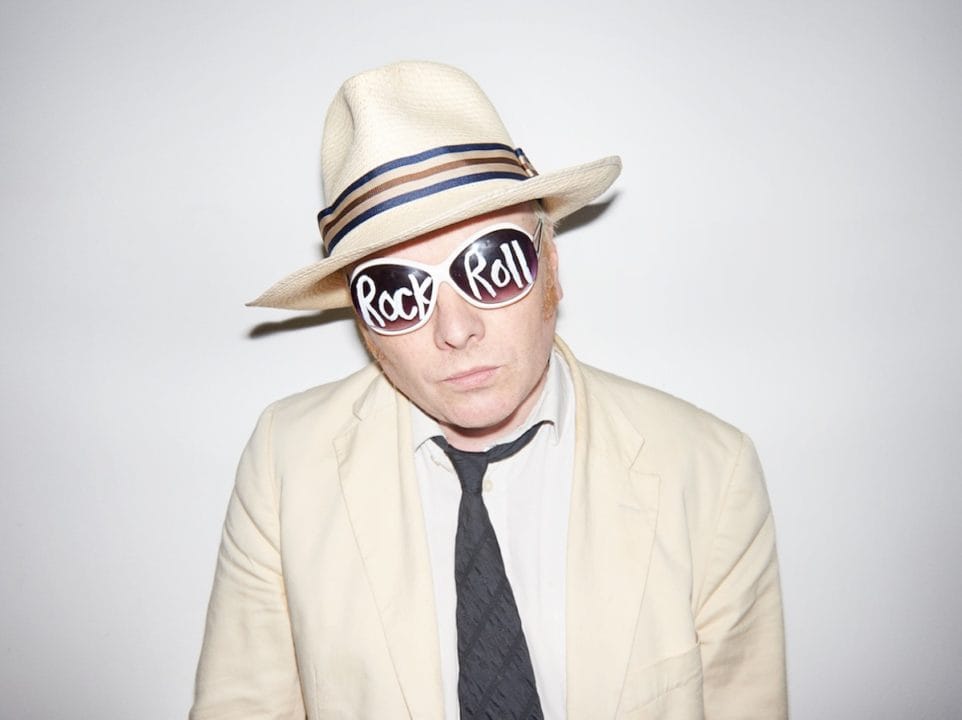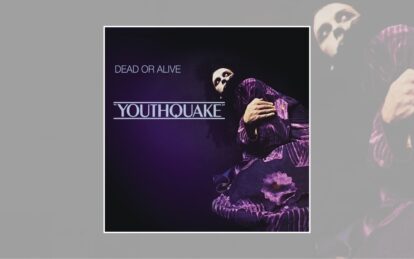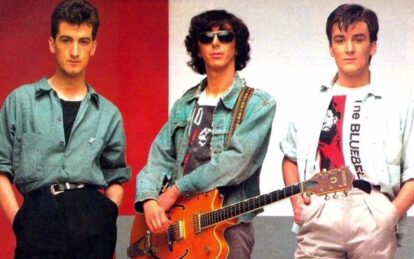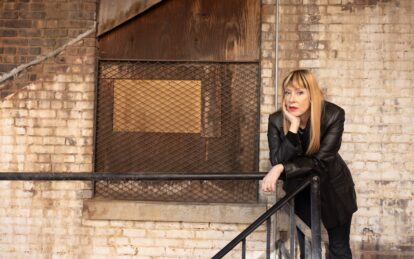
He has just released Luke Haines Is Alive And Well And Living In Buenos Aires: Heavy, Frenz – The Solo Anthology 2001-2017 on Cherry Red Records. The story goes that by 1999, aghast at the state of rock, you decided to “start a righteous solo trip”.
How righteous has it been?
Extremely righteous. I’d say by 2011 peak righteousness was attained with the psychedelic wrestling album (91⁄2 Psychedelic Meditations On British Wrestling Of The 1970s & Early ’80s) – an album that placed British wrestlers into psychedelic situations. From then on it’s been a blast.
What does …Is Alive And Well And Living In Buenos Aires: Heavy, Frenz – The Solo Anthology 2001- 2017 tell us about Luke Haines?
The last big compilation was called Luke Haines Is Dead in 2005. It ended at the point when Das Capital was released, I didn’t even know if I wanted to continue in music at that point – I hadn’t entirely figured out my rock’n’roll metier. That is, I didn’t know I had to move into my unprofessional freak-out period. This boxset covers my freak-out trip.
Was there a manifesto when you started The Auteurs?
I wanted The Auteurs to be nasty, mean-spirited and sarcastic. When The Auteurs were in town I wanted the vibe to be heavy… and bad. The Auteurs were a good rock’n’roll band. Very antagonistic. Black Box Recorder were about putting the fun into cruelty, and putting a bit of good old British cruelty into the charts. Melody Maker hailed you as the “new saviour of UK rock” in 1993.
What did it need to be saved from, and did you succeed?
I thought that was quite funny. UK ‘rock’ was nothing to do with me, so why would I save it?
You proclaimed that The Auteurs’ debut album, New Wave, was the impetus for Britpop – was this a good or bad thing?
The Britpop thing was thrust upon me and some of the other bands in the very early-90s. I made sure that the first Auteurs album was recorded and released before Suede’s first album. That was important. Everyone knew Suede were going to be enormous, I knew the Auteurs weren’t going to be, so it was important that we didn’t get lost early on.
Looking back, what do you think Britpop represented?
Nothing much – sales in Adidas tops going up, maybe? I always thought that Herman’s Hermits should have reformed in the 90s. If they’d made an album it would’ve outsold Oasis easily.
Were you slightly envious of the success of Oasis, Blur, Pulp et al? To me, Blur and Oasis had nothing to do with rock’n’roll. Rock’n’roll was for the misfits, the freaks and the losers. Blur and Oasis didn’t represent that. Damon (Albarn) was like the top of the class prefect who was also good at football but didn’t have to try. Both those bands played to the terrace element. I wasn’t jealous. I could no more play to the stadium than I could pole vault to the Moon.
What would you say is the enduring legacy of Britpop?
Conservatism. Brexit. You’ve written two memoirs, the first of which, Bad Vibes, embodied a “biblical desire for revenge”…
A revenge for what, exactly?
Bad Vibes was written with the intent of a secret diary. It wasn’t a diary – I’ve never kept one. The thing about secret diaries is they are not meant to be read when the author is still living. I took the decision that I’d write a secret diary that would be published when I was still alive. Secret diaries don’t hold back. When they are published they are the ultimate dish served cold.
What, if anything, could persuade you to reform The Auteurs?
Not a thing. I’ve been offered money, I’ve turned it down. Reforming has nothing to do with art. Every band that has reformed I’ve lost respect for. All tragic. All weaklings.
Classic Pop may earn commission from the links on this page, but we only feature products we think you will enjoy.






